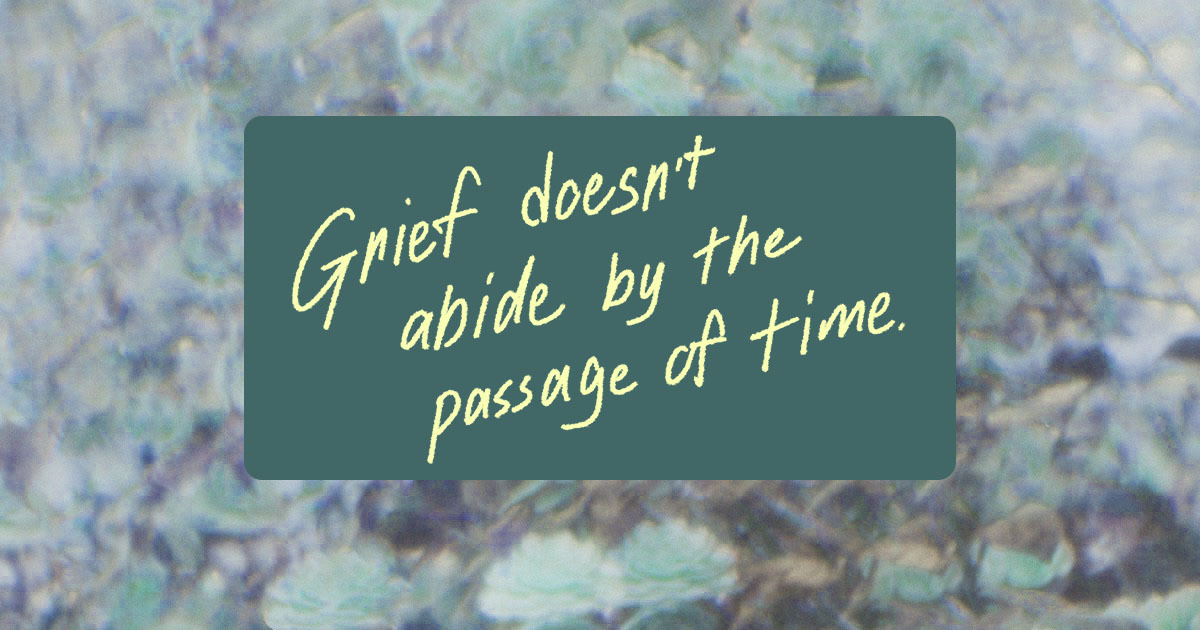I woke up at 3 am again. I’ve woken up at 3 am almost every night for as long as I can remember. I looked at the clock on my phone, and I saw the date. It took me entirely too long to remember why the date felt familiar and perhaps vaguely important. Then the realization hit. I had nearly forgotten again. It was 3 am on a Sunday, and it was my brother‘s birthday. I couldn’t remember how old he would have been. I had to count the years between now and the year he was born. The older I get, the faster the years seem to roll over each other, and the less I keep track of them. I barely remember how old I am anymore. I have to count the years for myself, too.
My older brother would have turned fifty this year. He was six years old the day I was born, but I am now ten years older than he was on the day he took his own life in our family’s unfinished basement. This realization somehow makes the procession of time become even blurrier. Time compels me to continue, forcing me to keep moving through the moments as they happen. But I don’t separate the moments by the before and after like my mother did. For her, it was the most defining moment of her life. It was the loss of her child, her firstborn. After his death, she saw all of our lives within the context of the before and the after. We were all defined by this one moment in time. For me, each moment has its own definition, each one redefines me in minuscule and monumental ways, even if I don’t realize it until long after the moment has passed.

My twins were exactly eleven weeks old that day. They are seventeen now. It’s been seventeen years. And my brother would have turned fifty this year. Even though I nearly forget his birthday and the day of his death every year, I don’t have to count the years between now and then. I know the years through my children. Their births mark the passage of time for me as I watch them grow. The irony is never lost on me, new life and death wrapped together intrinsically. Newborns meeting their uncle for the very first time at his funeral. Family members, I don’t see all that often, excitedly yanking them from my arms to welcome the new life into the world and into the family. All of the joy and hope new babies bring was starkly silhouetted against the backdrop of my brother’s casket.
I’ve often heard that people who are planning to die by suicide seem happier and more peaceful right before they do it. This was true for my brother. I was the last person he talked to, though I didn’t know this until years later. He called me that morning just to talk, to check in. Maybe I should have realized it was strange, as it wasn’t something he normally did, but we were working on repairing our relationship after too many years, and I was happy to talk to him. I was truly hopeful that we might someday be close again, like we were as young children. I realize now that his last phone call to me was his final apology for everything that had transpired. I realize now that our paths were what they were supposed to be.
It’s been seventeen years, and my brother would have turned fifty this year, but the numbers don’t seem to matter much because grief doesn’t abide by the passage of time.
It lingers in the small moments that you don’t expect to remember. It remembers the moments for you. And I still remember the moment I learned that my brother was dead. It was real. And then it wasn’t. And then it was again. And then time stopped. And I dropped my phone. And I screamed. Or perhaps I thought to scream, but didn’t. Or couldn’t. It was just a moment seventeen years ago, but a moment years ago can still split our hearts open like it was yesterday. Or this morning. Or five minutes ago. Or just now. Because grief doesn’t abide by the passage of time. It isn’t linear. It isn’t cyclical. It’s chaotic and disorganized. Grief doesn’t count the years between the moments that end up redefining us in monumental ways. And somehow, it always jumps out from the corners of our minds in moments we consider minuscule. Grief doesn’t measure itself, and it can never really be measured by anything beyond the moments it demands of us.
People need other people. You are not weak for wanting or needing support. If you’re seeking professional help, we encourage you to use TWLOHA’s FIND HELP Tool. If you reside outside of the US, please browse our growing International Resources database. You can also text TWLOHA to 741741 to be connected for free, 24/7 to a trained Crisis Text Line counselor. If it’s encouragement or a listening ear that you need, email our team at [email protected].
Safeatlast
Wendelyn, you are so articulate. Your essay describes grief so very clearly! Those few before-and-after events by which we make the years of our lives seem more manageable.
CJ
This is a beautiful essay on the realities of living with grief. It never goes away fully, just softens at times. Thank you for sharing your story.